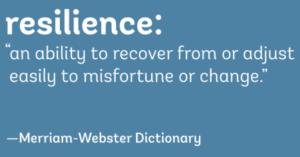
Dealing with discouragement is an inevitable part of life, affecting everyone at some point. Well-known Bible teacher Joyce Meyer has written extensively about this subject. Here is an article by Joyce that I’ve found very helpful. Whether it stems from setbacks, failures, or external pressures, overcoming discouragement is crucial for personal growth and success. In this article, we’ll explore effective strategies to navigate through challenging times and emerge stronger. Facing discouragement head-on is essential for maintaining a positive mindset and achieving our goals.

Understanding Discouragement
Discouragement often surfaces when our expectations clash with reality. It’s vital to recognize that setbacks are a natural part of any journey. Acknowledging this reality is the first step in understanding discouragement. Embracing the fact that challenges are temporary and can lead to valuable lessons helps shift our perspective. Pastor Charles Swindoll points to the Old Testament prophet Isaiah to help us understand the spiritual and emotional aspects of this subject.

Reframing Negative Thoughts
When dealing with discouragement, it’s common to entertain negative thoughts. However, reframing these thoughts is crucial for maintaining mental well-being. Instead of dwelling on failures, focus on the lessons learned and how they contribute to personal growth. The key to overcoming discouragement is transforming negative energy into a driving force for positive change. It’s possible that constant negative thinking might have a spiritual cause. The Bible provides instruction regarding how to recognize and defeat such spiritual warfare in the mind.

Cultivating Resilience
Building resilience is vital in dealing with discouragement. Cultivate resilience by developing coping mechanisms, such as mindfulness, meditation, or engaging in activities that bring joy. Resilience enables individuals to bounce back from setbacks, fostering the strength needed to face future challenges with a resilient spirit.

Setting Realistic Goals
Discouragement often arises when goals are unrealistic or unattainable. Setting realistic, achievable goals is essential for maintaining motivation and avoiding unnecessary setbacks. Break down larger goals into smaller, manageable tasks, celebrating achievements along the way. This approach not only makes progress tangible but also mitigates the impact of potential disappointments. For more help, the website “positivepsychology.com” features an article titled “How to Set and Achieve Life Goals The Right Way.” (27 May 2019, Catherine Moore, Psychologist, MBA ).

Seeking Support
In times of discouragement, seeking support is a powerful strategy. Share your thoughts and feelings with friends, family, or a mentor who can provide valuable insights and encouragement. Connecting with others helps create a support system that reinforces your resilience and determination to overcome obstacles. None of us can fight the challenges of life all by ourselves. Author Angi Ward has written a very helpful article for Christianity Today’s online journal titled “How I Found a Support Network.”Such personal stories are priceless in times of need.

Image Credit: StockSnap.io
Learning from Setbacks
It might sound cliche, but each setback is an opportunity for growth. It’s only natural to view failures as roadblocks. Even though you might not feel like it, evaluate the situation, identify areas for improvement, and use setbacks as a foundation for success. Learning from mistakes enhances problem-solving skills when dealing with discouragement. From a spiritual perspective, I have found I Peter 5:10 to be a constant source of strength: “And the God of all grace, who called you to His eternal glory in Christ, after you have suffered a little while, will Himself restore you and make you strong, firm and steadfast.”
-

Changes and Dealing With Discouragement
Image Credit: Jane Adshead-GrantEmbracing Change
Discouragement often accompanies change, whether personal or professional. Embrace change as a constant in life and an opportunity for new beginnings. A flexible mindset allows for adaptability, making it easier to navigate through uncertainties. Embracing change positively impacts one’s ability to overcome discouragement and seize new opportunities. Earlier in this article, I mentioned the prophet Isaiah and his struggle with discouragement. Although he went through some extremely difficult situations, he was also graced to bring a direct “Word” from God when it was needed most. These words still ring true for countless people: “Forget the former things; do not dwell on the past. See, I am doing a new thing! Now it springs up; do you not perceive it? I am making a way in the wilderness and streams in the wasteland.” Isaiah 43:18-19

Image Credit: Self-Care Sundays With Gabby
Celebrating Small Wins
Acknowledging and celebrating small victories is essential in the journey to overcome discouragement. These victories, no matter how minor, contribute to a sense of accomplishment and boost confidence. By recognizing progress, individuals can stay motivated and maintain a positive outlook on their path forward. Here is an article found on Harvard Business Review’s website called “The Power of Small Wins.” (May 2011, Teresa M. Amabile and Steven J. Kramer. ” https://hbr.org/2011/05/the-power-of-small-wins).

Practicing Self-Compassion
In moments of discouragement, it’s crucial to practice self-compassion. Treat yourself with kindness and understanding, recognizing that everyone faces challenges. Avoid self-criticism and negative self-talk, focusing instead on nurturing a positive inner dialogue. Self-compassion fosters resilience and provides the strength needed to persevere through difficult times. Showing yourself compassion is the same thing as showing yourself grace.
“Dealing with discouragement is…universal”
Discouragement is a universal experience, but if not properly dealt with, it can lead to depression. Asking Why might make all the difference. By understanding discouragement, reframing negative thoughts, cultivating resilience, setting realistic goals, seeking support, learning from setbacks, embracing change, celebrating small wins, and practicing self-compassion, individuals can navigate through challenging times and emerge stronger than ever before. The key to success lies in the ability to transform adversity into opportunities for growth.














